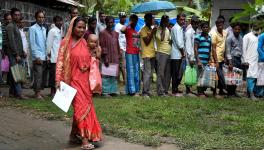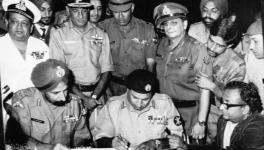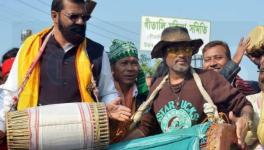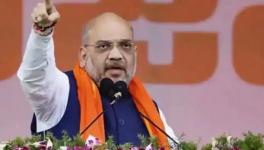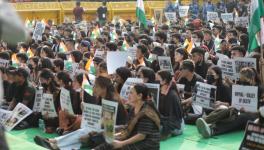Why Hindus Must Also Worry About NPR-NRIC
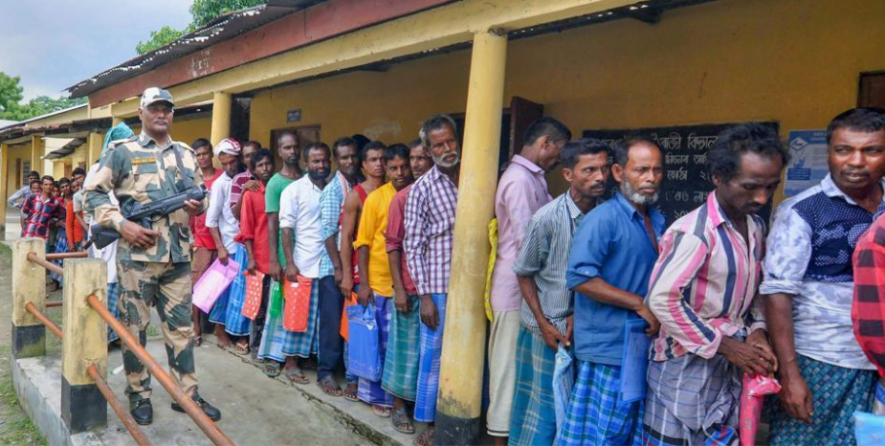
Representational Image. Image Courtesy: PTI
The Narendra Modi government’s decision to push ahead with the updating of the National Population Register (NPR) is rightly regarded as the first surreptitious step to create a National Register of Indian Citizens (NRIC). The legal linkage between NPR and NRIC should alarm all Indians.
Even Hindus should be alarmed because the NPR-NRIC architecture, which is outlined in the Citizenship (Registration of Citizens and Issue of National Identity Cards) Rules, 2003, vests enormous powers in bureaucrats to decide who is an Indian citizen and who is not. They can, under instructions from their political masters, harass dissenters or ideological rivals. Or raise doubts about the citizenship of anyone for extracting bribes. The disempowered among them will be worst hit.
The Citizenship Rules mandate the preparation of NRIC from NPR, which will reportedly collect 21 data points for every individual, including the date and place of his or her parents’ birth. The information provided does not require documentary proof. The government’s disavowal of using the NPR data for NRIC has been largely disbelieved because Home Minister Amit Shah, among other Bharatiya Janata Party (BJP) leaders, has repeatedly insisted, over the last one year, of implementing a countrywide NRC.
The step of converting NPR into NRIC begins at the second, or verification, stage. The Citizenship Rules state that the “particulars of every family and individual in the Population Register shall be verified and scrutinized by the Local Registrar”, who will be appointed at the sub-district or taluk level by the state government. The local registrar will have an inquiry conducted into the particulars of those whose citizenship he or she doubts, inform them about it, and make an entry in this regard in the Population Register.
The person whose citizenship is doubted will enjoy the right to be heard by the sub-district or taluk registrar, who will ordinarily be required to reach a decision within 90 days of having made an entry in this regard in the NPR. The 90-day limit can, however, also be extended.
Thereafter, the local registrar at the sub-district or taluk level will publish what is called the draft Local Register of Citizens. What follows this is downright scandalous—any person can file objections against the inclusion of any name in the draft register, within 30 days of its publication. The doubtful citizen gets another 90 days to prove his or her bona fides to the Local Registrar, who will then submit the Local Register of Indian Citizens, with the names of doubtful citizens struck off, to the District Registrar of Citizen Registration.
The doubtful citizen gets 30 days to appeal to the District Registrar against the Local Registrar’s decision. The District Registrar is required to take a decision on the appeal within 90 days, at the expiry of which, in case the appeal is not accepted, his or her name will be left out from the Local Register of Indian Citizens. The Citizenship Rules mandate the District Registrar to transfer entries in the Local Register to the National Register of Indian Citizens.
On the basis of this timeline, a citizen will take roughly a year to become an illegal immigrant. He or she will, presumably, still have the recourse to the judicial process to win back his citizenship status. As a citizen battles a callous, impersonal system to prove her or his citizenship, she or he is likely to become a nervous wreck as well as bankrupt.
The NPR-NRIC exercise will affect all, not just Muslims, because of the powers vested in the Local Registrar. He or she can raise doubts on the citizenship of any person, whether to extract money, or who may be a threat to dominant groups, or who poses a challenge to the state.
It is a myth that the Hindus, even when targeted thus, will have the protective shield of the Citizenship Amendment Act, which seeks to grant citizenship to non-Muslims who slipped into India from Pakistan, Bangladesh and Afghanistan, without valid documents, because of religious persecution.
A Hindu in South India, for instance, cannot claim immunity from proving his or her citizenship under the CAA. Nor perhaps Hindus from most parts of India. All of them will need to show that they or their ancestors were born in Pakistan, Bangladesh and Afghanistan—and were also religiously persecuted. They will find that a hellish, if not impossible, task.
This is because of the NPR-NRIC process. The NPR data are generated through self-declaration; no proof is required to be furnished at this stage. But once the NPR becomes the basis for preparing the NRIC, the Local Registrar’s doubts about the citizenship of any person can only be quelled through documents establishing his or her place and date of birth, or through those of his or her parents.
A Hindu whose citizenship is doubted, for whatever reason, cannot suddenly contradict his or her own declaration to the NPR about his Indian nationality and claim origin from Pakistan, Bangladesh and Afghanistan. It will anyway be downright ridiculous for, say, hundreds of Tamils to claim they were religiously persecuted in Pakistan or Afghanistan. As Faizan Mustafa, vice-chancellor of Nalsar University of Law, Hyderabad, recently pointed out, “Most people will find it difficult to prove both their nationality of three countries and their migration due to religious persecution.”
Yet this impression has gained ground because of the peculiar, perhaps mischievous, framing of the CAA, which mentions religious persecution in its statements of objects and reasons, but not in its provisions. “Two interpretations are possible,” Mustafa said. “One is that anyone [who is non-Muslim] can come… The other is that if it is only for religious persecution, then people who are coming here for economic reasons, even if they are Hindus, they will not benefit from this law.”
Given this confusion over CAA, it is absurd to think, as many do, that the shield of CAA can be extended to any Hindu whose citizenship is marked doubtful. Under the Citizenship Act of 1955, they will have to prove they were born in India before July 1, 1987. Many poor, illiterate Hindus, like their counterparts in the Muslim community, will likely not have birth certificates, giving ample scope to the Local Registrar to torment them.
It will be even more complicated for those born between July 2, 1987 and December 3, 2004. This is because not only will they have to furnish birth certificates, but also prove that one of their parents was an Indian citizen. As for those born after December 3, 2004, they will have to convince the Local Registrar that one of their parents was not an illegal immigrant.
It is not only the Local Registrar, driven by avarice, who can raise doubts about the citizenship status of those in the NPR. Unfriendly neighbours could do so, as could local political leaders about numerically small groups which do not vote for them. Or state officials could use the NRIC to target those who they consider a nuisance. This will compel them to go through the cumbersome process of proving citizenship for at least a year, if not more.
The NPR-NRIC dyad will undoubtedly be used to profile Muslims. But the powerful will also use it as a veritable cleaver against the poor, illiterate Hindus who assume Prime Minister Narendra Modi, the veritable Hindu Hriday Samrat, will somehow ensure they are not scrubbed from the NRIC. A Hindu who is declared an illegal immigrant in the NRIC will not come under the CAA umbrella. Detention and deportation will be his or her fate.
India cannot, obviously, detain or deport lakhs of its people. But they can be disenfranchised, for which there is already a precedent. The Citizenship Act disenfranchised foreigners who entered Assam between January 1, 1966 and March 25, 1971 for 10 long years, or two election cycles. Those who would be left out of the NRIC will largely be lower class-lower caste, which constitutes the substantial support base of regional parties, a compelling reason why they need to rethink their position on the NRP-NRIC.
The writer is an independent journalist based in Delhi. The views are personal.
Get the latest reports & analysis with people's perspective on Protests, movements & deep analytical videos, discussions of the current affairs in your Telegram app. Subscribe to NewsClick's Telegram channel & get Real-Time updates on stories, as they get published on our website.











